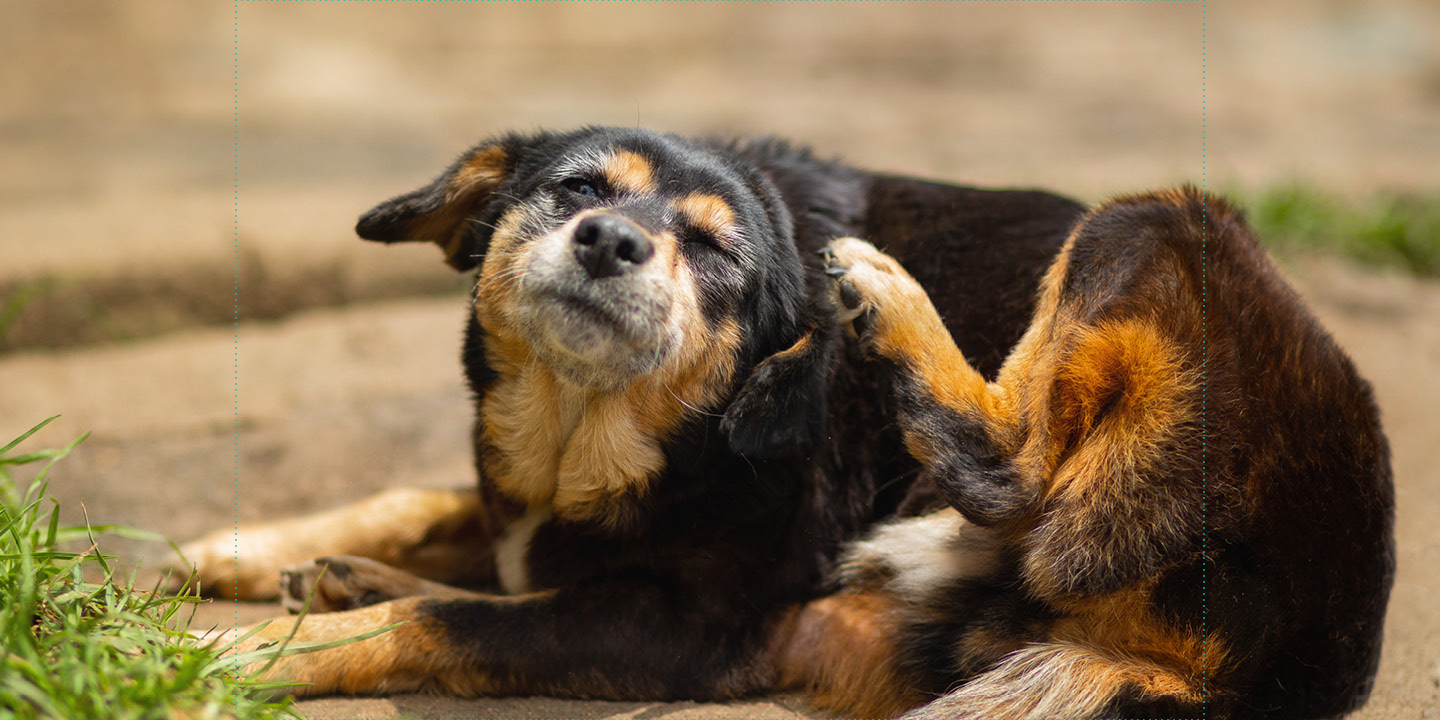
Pet Allergies
The function of your pet’s immune system is influenced by both genetic and environmental factors, which can cause an onset of allergic reactions.

While out in the summer sun with your dog, beware of potential health hazards that could cause upset stomachs, poisoning or skin irritations including:

Karaka berries will turn orange and fall off the trees during the months of January to April. These berries remain toxic after they have fallen from the tree.
Symptoms are quite often delayed by 24–48 hours, but can be fatal if not treated in time.
• Weakness
• Vomiting
• Confusion
• Back leg paralysis
• Convulsions
Learn more about Karaka berry poisoning here.

Pets love investigating smells in the garden, particularly when there is blood and bone fertiliser (ground animal products) or food smells in compost.
Most fertilisers contain chemicals that are poisonous to your pets and mouldy food in compost can contain harmful toxins.
• Lethargy
• Vomiting or diarrhoea
• Increased breathing
• Salivation
• Pale or grey gums
• Loss of consciousness
Read about a case of compost toxicity we saw at one of our Animates Vetcare clinics!

Cyanobacteria (toxic algae) is found in rivers, lakes and waterways throughout New Zealand.
It can be toxic to both animals and humans. Dogs are especially sensitive to the toxins from Cyanobacteria.
• Lethargy
• Muscle tremors
• Fast breathing
• Twitching or convulsions
• Paralysis
Learn more about these toxins here.

Metaldehyde is a common ingredient in slug bait which is extremely toxic to animals if ingested. Many pets are attracted to these baits due to the palatable ingredients.
Rat bait poisoning occurs when an animal is exposed to Bromethalin which inhibits blood clotting and causes haemorrhage (bleeding). Exposure can be through ingesting bait or secondary poisoning if they eat a rodent which has ingested the poison.
• Lethargy
• Vomiting or diarrhoea
• Increased breathing, heart rate and salivation
• Muscle tremors or convulsions
• Loss of consciousness

If your dog comes into contact with these plants, it can cause allergic dermatitis which can be extremely itchy and uncomfortable.
• Red itchy skin

Dogs are at risk of jellyfish stings not only when swimming but also by coming into contact with washed up tentacles on the beach. Jellyfish stings can cause great discomfort to your dog and be painful around the eyes, nose, mouth and feet.
• Red skin
• Swelling or hives
• Pain

The buzzing of a bee can attract your pet’s attention, unfortunately this often results in a sting which can cause swelling and temporary pain. Multiple stings, or a sting in the mouth or throat and allergic reactions are dangerous and require treatment.
• Swelling
• Weakness
• Difficulty breathing
• Extreme irritation

The function of your pet’s immune system is influenced by both genetic and environmental factors, which can cause an onset of allergic reactions.